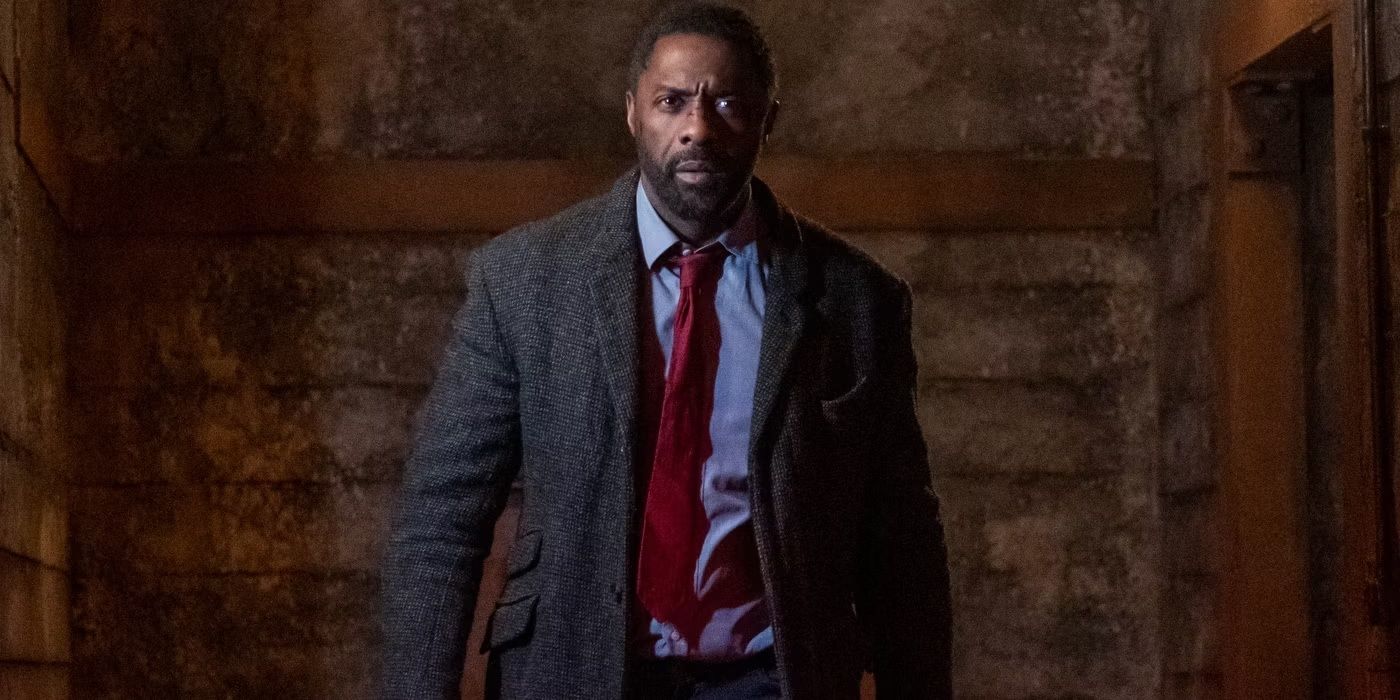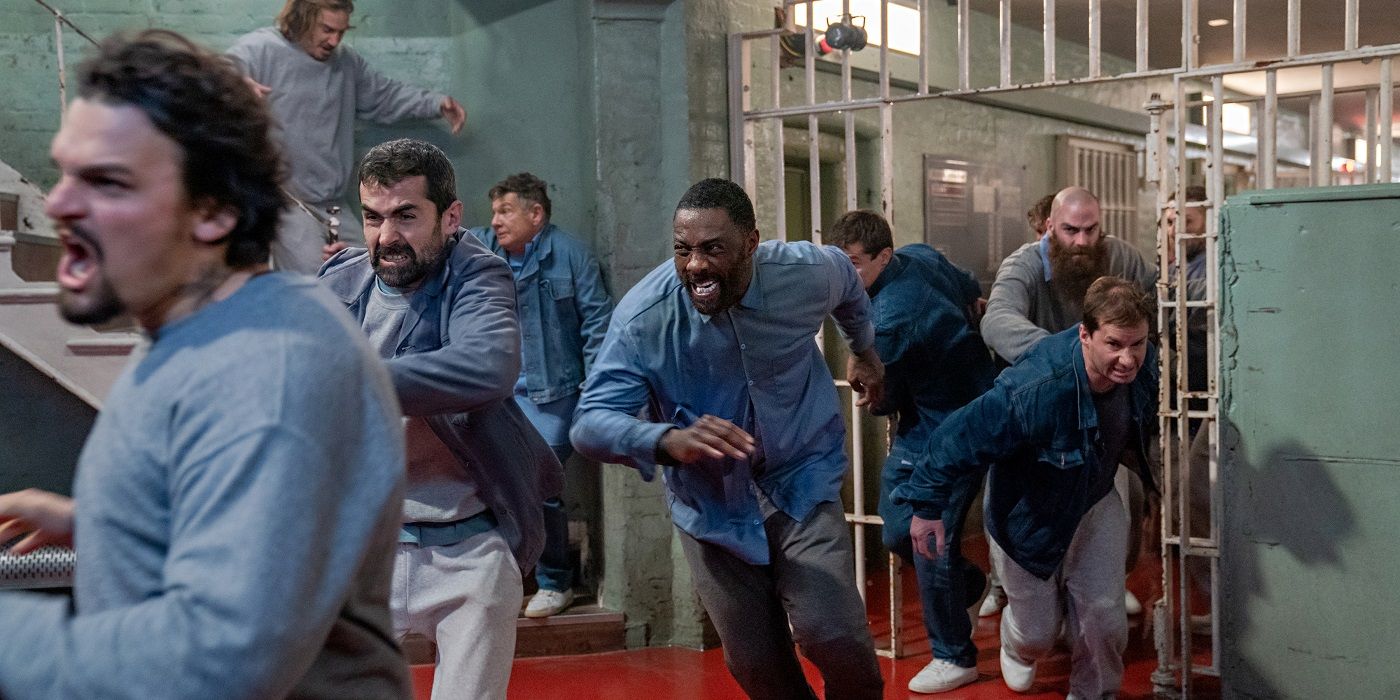The stakes are the highest they have ever been for DCI John Luther. The tough-as-nails detective played by Idris Elba is back in a Netflix film titled Luther: The Fallen Sun. Directed by Jamie Payne, from a script written by Neil Cross, Luther encounters his most dangerous foe yet: the psychopathic David Robey (Andy Serkis), who uses information as his lethal weapon. Luther: The Fallen Sun also marks the character's debut in a film after the successful BBC television series that ran for five seasons between 2010 and 2019.
CBR caught up with Payne and Cross to discuss how they tackled the move from television to film and if any significant adjustments had to be made to the story. The creators peeled back the curtain to chat about the magic behind the scenes. Cross also revealed what the future holds for John Luther.
CBR: Jamie, you directed episodes of Luther before. What did you try to do differently this time around for Luther: The Fallen Sun?
Jamie Payne: I love Luther. I loved Luther before I directed it. So I came at the series as a fan. If you'd have asked me what I believe made Luther great, I'd be able to tell you before I directed an episode of it -- just [as] an audience member. I think it's making sure in a two-hour format that we protected all those things that made the story great in the first place. As far as what the difference in directing a television series to a film [is], it's time and resources. The rhythm that was carefully calculated in the TV series is as calculated in the feature-length, but I was given more time and resources to do it. I guess it was how to make [the] best use of that. But the truth is the story led everything.
Neil, what was your approach to writing the film as opposed to the series? Was it a massive change from how you would approach it normally?
Neil Cross: Not conspicuously. Making TV is a very practical nuts and bolts operation, and you quickly learn what you can do within certain budgetary and time constraints. Then you work with a director like Jamie, who was able to push those constraints to their limits so that you make something bigger than the time and money allow you to do. There was a degree of freedom, knowing that I was writing a feature. But I didn't write a feature with the budget already set. I just wrote the story that I thought we needed to tell at the scale we needed to tell it, and then we found it and amplified those bits that needed amplifying. Jamie is not scared of a challenge as the Piccadilly Circus sequence demonstrates. So, no, the challenge of the script was just making sure that we were telling a story about John Luther. That no matter how different the storyline might be, or whatever different the circumstances, it's still him.
Payne: In prepping a television episode, you have to break it down into 1000 different parts very quickly in order to make sure we can make [the] best use of that two weeks, which is the average amount of time to shoot an hour's worth of Luther. So, it was just a scaled-up version of breaking those pieces down -- and luckily, we were given more time. The process of transcription was very similar. It's just the time [for] each one of those pieces, and probably double the amount of components when they were broken up. That sounds terribly scientific, but the process stays the same.
Jamie, Idris mentioned his love for the prison scene. What were the challenges of shooting such a sequence, especially since there aren't that many cuts?
Payne: First of all, the location is tricky because it's a Victorian location. I think it'll still be there when we're long gone. So, moving a film unit through it was tough. We did a lot of rehearsals for those one-takes with very well-trained stunt performers to make sure that we could achieve those single takes. What none of us imagined is that when Idris Elba stepped in to embody those sequences, those takes would be twice as long. It was obviously a choreographed sequence, and we thought there'd be more cuts in it, But because of his dedication and his stamina, it meant that I could keep going. I didn't have to say "Cut" after five seconds because I had an actor that was pushing into his layers of exhaustion in order to pursue that choreographed sequence. It adds a lovely emotional connection between the audience and John Luther. It's because of Idris.
Neil, where do you think Luther can go from here? What more can be explored with the character?
Cross: I think the options are essentially limitless. What became very evident to us very early on in the TV show is that the character of John Luther -- because of Idris, because of his power, his magnetism, and his charisma -- is in no way defined or determined by genre. So part of the process of making a TV show was, latch by latch, freeing him from the shackles of genre. We've moved into a slightly different genre now -- a slightly different mode of storytelling. But we will always find new scenarios and new ways to tell stories about John Luther. That's the key. No matter what kind of story we tell, at heart, it's got to be a story about him.
Luther: The Fallen Sun hits Netflix on March 10.


